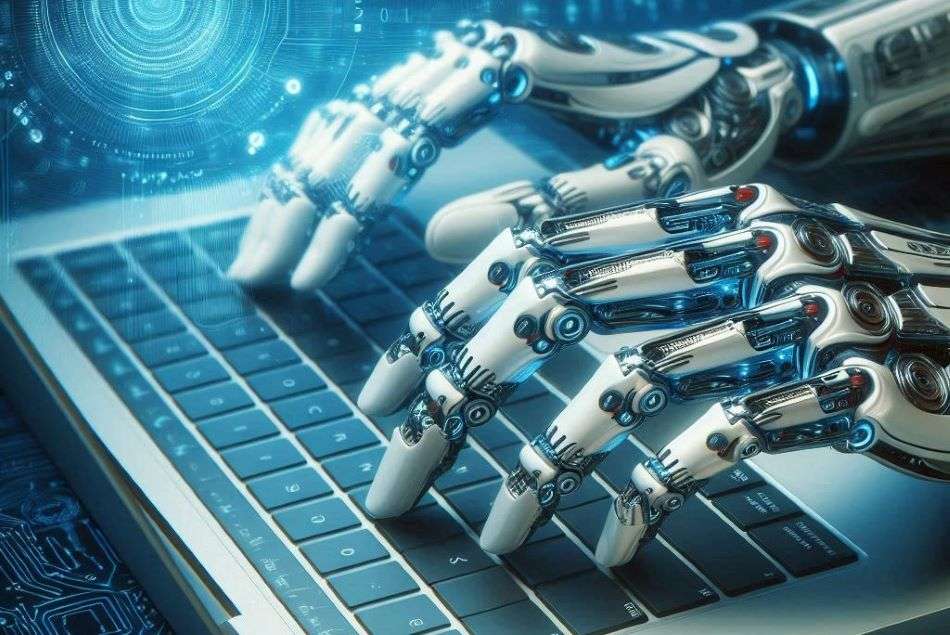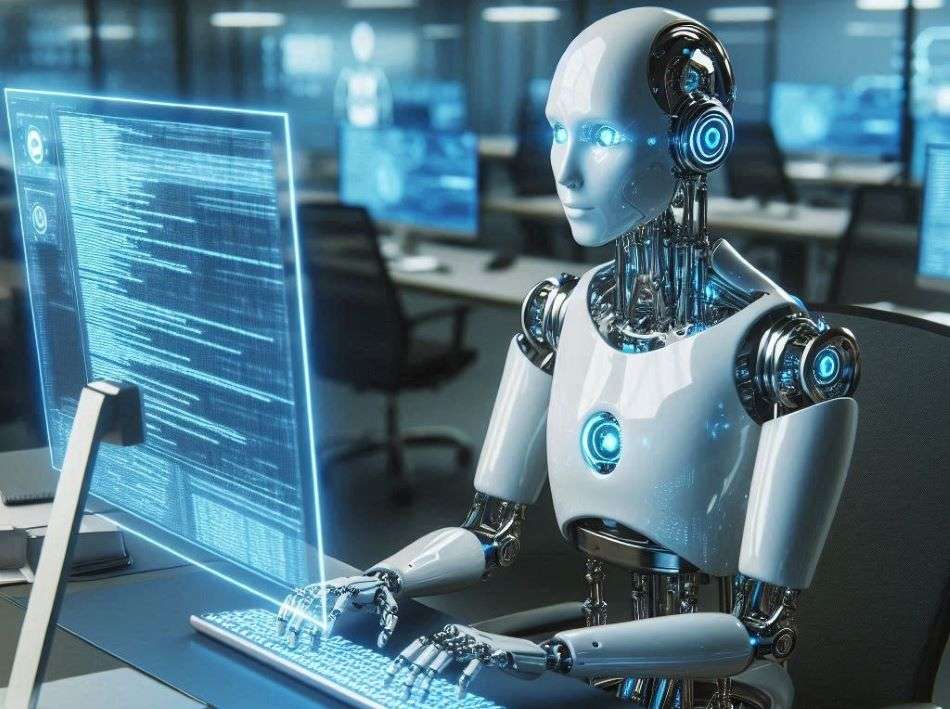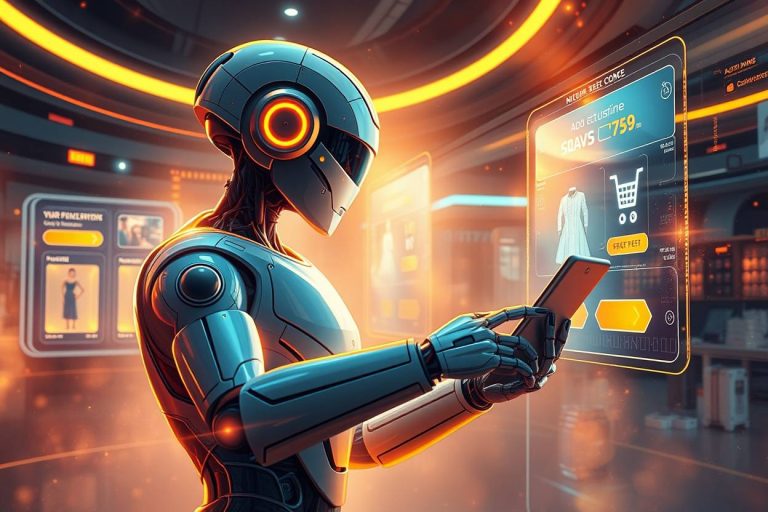AI is changing the game in web development, but the human touch remains as critical as ever

From an intriguing technology that once conjured images of a dystopian future, artificial intelligence (AI) has become a widespread presence in our society, causing disruption in every industry and sector it touches. Our world is not run by AI-powered humanoid robots, as many feared would happen, but it’s obvious that AI is rapidly spreading to all areas and aspects of life, leaving a trail of transformation in its wake.
Key Points
- AI is automating routine tasks in web development, allowing developers to focus on more complex projects.
- AI is enabling website personalization, leading to better user experiences and engagement.
- AI is helping analyze vast amounts of data to provide insights into user behavior and website performance.
- AI is aiding in content creation, improving the quality and SEO optimization of website content.
- While AI is transforming web development, human developers remain crucial for tasks requiring emotional intelligence and understanding real-world nuances.
We’ve witnessed how AI has helped advance personalized medicine and improved the diagnostic process and access to medical services in the healthcare industry or how it managed to revolutionize the e-commerce sector by optimizing supply chains and enhancing customer experience.
Therefore, it should come as no surprise that AI is also making a notable impact in web development – an industry known for its dynamic and ever-evolving nature. Professionals in the field have wasted no time leveraging cutting-edge AI tools to complete their tasks faster and more efficiently. According to Statista, 82% of developers are currently employing AI tools to write code, while 62% use it to search for answers. In addition, many cheap website builders have also integrated AI capabilities like machine learning algorithms to streamline the process of setting up a website and deliver personalized services to their clients.
So, it’s safe to say that AI has become a powerful force in the web development landscape. But what exactly are the changes it prompts, how far does its influence stretch, and most importantly how does this impact web developers? These are some of the questions that require deep consideration.
Reshaping the web development process
Through its many applications, AI has the ability to fundamentally transform the way websites are created and maintained, as well as the experience they provide to end users. Designers and developers have a wide range of AI-based tools at their disposal that allow them to find effective solutions and overcome many of the challenges they face in their activity. The result is impeccably designed and top-performing sites that stand out from their non-AI-powered counterparts. So, let’s see what aspects of web development bear the mark of AI’s influence.
Repetitive tasks
The work of web developers implies a multitude of repetitive tasks and operations that can be quite tedious and time-consuming. AI can automate many of these processes, such as resizing images, generating code suggestions, detecting bugs and vulnerabilities, and so on. This eliminates the need to manually handle routine tasks, giving developers the possibility to shift their focus to more complex operations and thus speed up the web development process.
Personalization
The power of personalization in elevating customer experiences in the digital space cannot be understated. Websites that create customized experiences for visitors register higher traffic and retention levels. AI can help web developers build sites that adapt and respond to users’ individual needs by using advanced algorithms that analyze and recognize behavior patterns and read into their preferences. This means users get to enjoy relevant content, personalized recommendations, and optimized design when accessing the site.
Data analysis
Data analytics plays a vital role in web development, as it provides developers with key insights into users’ behavior and website performance so they can make strategic decisions and carry out successful projects. AI is capable of analyzing huge amounts of data, helping developers identify trends, spot issues, understand and predict users’ needs, and use all this information to achieve better results.
Content creation
Although it’s not technically a part of the web development process, content represents an important element of successful websites. High-quality content is what attracts visitors to a site, keeps them exploring, and makes them come back, ultimately boosting the website’s ranking in search results. AI content generators have already proven their efficiency in creating engaging and relevant content that is SEO optimized so websites can get more easily discovered by target audiences and increase organic traffic.
Where does this leave human developers?

With AI constantly advancing and expanding its use cases and reach, it’s only fair to assume that the importance it holds in the web development realm is only going to grow in the years to come. But if AI tools are already able to perform so many intricate operations and can do the heavy lifting for web developers, what is their contribution to the web development process? Is it possible for this profession to become obsolete at one point?
The general consensus on this matter is that it’s highly unlikely that web developers could ever be replaced by AI counterparts. As smart and advanced AI programs might become, they are still non-sentient entities, and that’s a shortcoming they’ll never be able to overcome.
There are obvious benefits to integrating AI solutions into web development, as stated above. However, the intervention of human developers remains instrumental to the web development process. AI excels at analyzing data, automating tasks, and bringing innovation and creativity to the table, but it can’t grasp the depth of human emotions or understand the nuances of real-world interactions and dynamics. All these aspects are crucial for developing truly outstanding websites that meet users’ rising demands.
In this context, it’s much more reasonable to think of AI as a tool that can complement the efforts of web designers and developers rather than an all-powerful technology that will steal their jobs. And let’s not forget about the challenges that implementing AI still poses. The use of AI in web development raises issues around transparency, security, maintenance, and training, so it’s not such a simple and straightforward endeavor.
Final thoughts
There’s no denying that AI tools have become immensely popular with web developers over the past years. This innovative technology has already brought significant transformations to the field and promises to become all the more impactful in the future. But as we’re keeping a close eye on AI’s evolution, we need to remain aware that industry professionals still hold the reins, and it’s up to them to manage AI’s foray into web development in a responsible manner.




